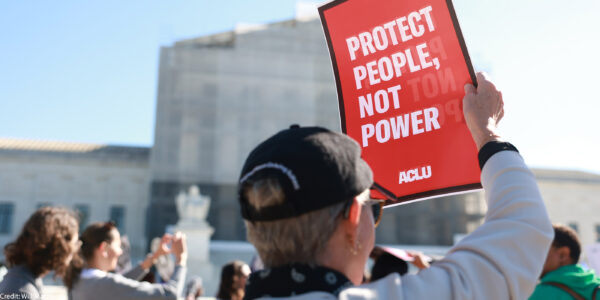
Police officers in what Massachusetts city are outraged by the potential privacy infringement if police departments install GPS tracking devices in all patrol cars?
In which state is it possible to be registered to vote for President, but not eligible to vote for Governor?
Which federal court refused to block a Texas law that has forced more than one third of the women's health centers to stop providing abortions?
The publisher of what website was wrongly held legally responsible for someone else's Internet trolling?
True or false: police practices that focus on criminal activity—not on race, religion, or protected political beliefs and associations—keep us all safer.
Cops outraged about GPS tracking plans in Boston
Boston Police Department bosses want to install GPS monitoring devices in every patrol car, to enable dispatch to more efficiently process 911 calls. But police officers and their union are outraged, saying that the ubiquitous tracking is too invasive of their personal privacy. Tracking the location of officers as they go about their days would reveal incredibly detailed information about their lives, the officers say.
Kansas Voters Deserve Equality
According to the state of Kansas, some voters are qualified to vote for President, but not for Governor or Secretary of State.
Why? The state has set up a two-tiered system for voter registration, arbitrarily separating voters into two unequal classes. Voters who register to vote using a state form can vote in all elections, but voters who register using the standard federal form can only vote in federal elections. These voters have done everything that they are supposed to do – complied with all federal legal requirements for voter registration, including providing proof of citizenship through an oath under penalty of perjury – but they are being arbitrarily denied the right to vote in state and local elections.
A Dark Day for Texas Women. A Dark Day for Justice.
This week the U.S. Supreme Court issued a decision refusing to block a Texas law that has forced more than one third of the women's health centers to stop providing abortion. The Court reached its decision despite the fact that the law is having devastating effects on women in the three weeks that it's been in place. Women have been turned away from clinics. They are frustrated, angry, and in tears. In large parts of the state, including the Rio Grande Valley, there is no abortion provider.
The $338,000 Internet Comment
The ACLU has written before about Section 230 of the Communications Decency Act of 1998 — a federal law that protects the robust diversity of free speech on the Internet. This week, the ACLU and the ACLU of Kentucky filed a friend of the court brief on behalf of the user-generated gossip website TheDirty.com and its publisher Nik Richie, who were recently — and wrongly — held legally responsible for someone else's Internet trolling. Our brief, filed alongside a star-spangled list of organizations dedicated to free speech, argues that the decision could be a disastrous precedent for Internet speech.
Big Brother's Always Been Watching Some of U.S.
As revelations from whistleblower Edward Snowden continue to mount, Americans have been shocked by the NSA's incredible invasions of privacy - some more so than others.
There has been a noticeable difference between the reactions of minority groups and that of white and privileged Americans. While both have been incredibly vocal—calling for an immediate restoration of our Fourth Amendment protections—minority groups have been far less stunned by our government's "new" invasions of privacy.
Learn more about your civil liberty issues: Sign up for breaking news alerts, follow us on Twitter, and like us on Facebook.



